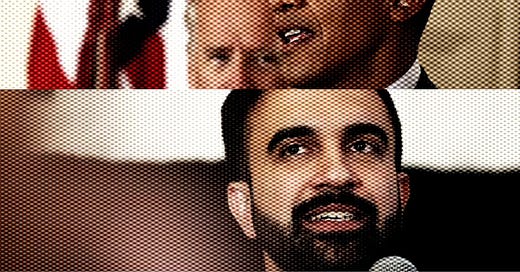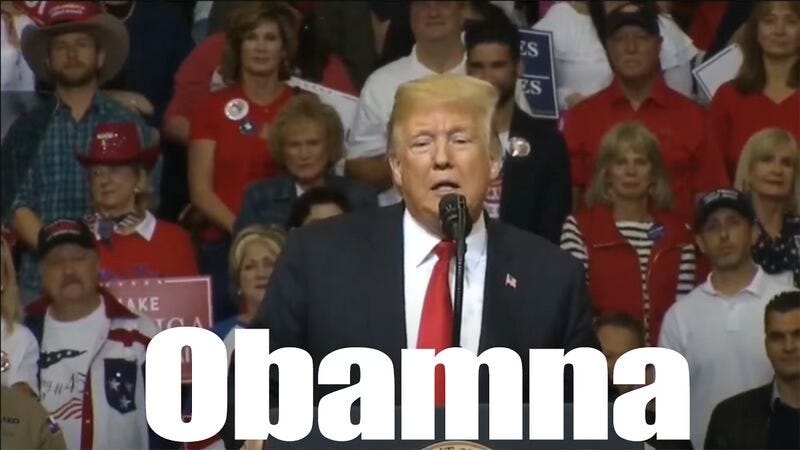In 2015, Barack Obama was nearing the end of his presidency with a Democratic Party that seemed relatively stable, even optimistic about its future prospects. Yet, that cautious optimism was abruptly shattered by Donald Trump’s unexpected election victory in 2016 over Hillary Clinton. While not a devastating defeat, the establishment Democrats who remained in power understood that to have any prospect of winning again they had to send one simple message: "Donald Trump is a danger to the republic, and we are the only ones who stand between him and democracy." Fast forward to 2025, and Democrats find themselves clocked in the face once again by "Orange Hitler." So how did the democratic base react to the Cheeto man being re-elected? Well, their answer is Zohran Mamdani, a young socialist with limited political experience as a New York assemblyman. This mayoral election tells us exactly where the Democratic Party is headed. An AOC 2028 ticket is looking likelier than ever.
While Obama promised hope and change, his incremental policies left many progressive voters dissatisfied. The dissatisfaction grew among the left when the DNC crowned Hillary Clinton as the primary winner. The DNC, through the influence of money, superdelegates, and media control, rigged the primaries against Bernie Sanders, leaving him and his electrified base kicking rocks. The progressive wing of the Democratic Party wanted something bolder, something revolutionary - things that are impossible to say about Hillary.
Enter Orange Hitler, whose presidency sparked intense polarization. Political polarization not only spread across America, but deeply within the Democratic Party itself. Democrats did rally around "The Resistance," but under the surface, ideological battles that sought to test how woke someone truly was broke out within the party. The party steadily divided itself into progressives who wanted fundamental change and moderates who thought the glory days of the Obamna (yes) administration was the future of the party, forevermore until the end of time.
Joe Biden was supposed to be the messiah, the one who would bridge these deep divides after Trump’s tumultuous first term. But Biden, through his hubris, senility, and unsatisfactory policies, set the stage for a Trump comeback. As it turns out, a Democratic president can't unify the Democrats (let alone the United States) through bumbling speeches, obsessions with ice cream, endless gaffes, superficial appeals to the moderate wing of the party (and yes, they were superficial), overly scripted photo-ops, incoherent policy messaging, reliance on outdated political clichés, dismissive attitudes towards younger voters, lack of genuine outreach to young men (who overwhelmingly supported Trump), avoidance of tough conversations, inability to handle criticism constructively, and an unwillingness to address deep-rooted institutional problems within the party. I stopped the list there because I could go on and on and on.
Zohran Mamdani's primary victory is not an accident. In my opinion, it represents a glaring symptom of how deeply the Democratic Party has become infected with a dangerous strain of radical ideology. Mamdani represents young, idealistic voters who've been seduced by extremist narratives and identity-driven politics. Defunding the police in a city where people feel unsafe riding the subway on their way to work? Check. Cuban-style government-run grocery stores? Check. Rent-freezes? Check, check, and check. To the far-left, white champagne socialist base, Mamdani appears genuine, but this authenticity is a carefully curated illusion built on outrage and revolutionary rhetoric rather than substantive solutions. Anyone with a basic understanding of economics, and rudimentary knowledge of how socialist policies have hurt the countries that have adopted them would, without a shadow of a doubt, realize that Mr. Mamdani is a snake-oil salesman.
But here's the real issue: this shift toward radicalism is political malpractice. Democrats are openly flirting with electoral disaster by pushing revolutionary progressive ideals that most mainstream voters find alienating and alarming. I am already seeing this coming to a head with immigration. Mamdani has openly stated that he will impede the Trump administration's immigration policy. This is a pressure cooker that is going to explode, and the fact of the matter is that it's most likely going to explode on the democratic side of the aisle. Despite its controversies, the Trump administration's immigration policy remains popular, and Democrats are risking losing broad voter appeal for the sake of appeasing an increasingly militant pro-open-border minority.
Looking forward, Democrats face an existential choice. Fully embracing Mamdani’s brand of extremist politics might energize a vocal subset of the electorate but risks completely losing moderate and independent support, effectively handing elections to the Republicans they so loathe. Alternatively, rejecting Mamdani’s destructive path and recommitting to centrist pragmatism might risk temporary internal conflict but would ultimately preserve the party’s long-term electoral viability.
Ultimately, Democrats of all stripes need to firmly reject radical ideologues like Mamdani. Without decisive action, the party risks spiraling further into extremism, disconnected from mainstream Americans who want moderate leadership and real solutions, not revolutionary war cries from trust-fund babies.
This article is part of the Deep Dive section, where we unpack the geopolitics and domestic politics behind the headlines.
About the Author: Marco Rodriguez is a political analyst and writer focusing on U.S. foreign policy, security, and global power dynamics. His work blends deep historical insight with sharp contemporary analysis. He is the creator of this Substack, where he explores the intersection of diplomacy, conflict, and leadership in the 21st century.







